What to do to prevent eggplants from becoming bitter and is it possible to eat bitter fruits?
Many of us have encountered such a nuisance as bitterness in eggplants. Dishes containing them are not only tasteless, but also unsafe for the human body. A natural question arises as to why this happens and how to prevent it.
Today we will talk about the main causes of bitterness in eggplants and what to do to avoid this when growing.
Why are eggplants bitter?
Bitterness in vegetables is caused by a large amount of toxic alkaloid - solanine.. In large quantities it is a real poison. Most often, the accumulation of this substance occurs in overripe fruits. But this is far from the only reason - we’ll tell you about them all in order.
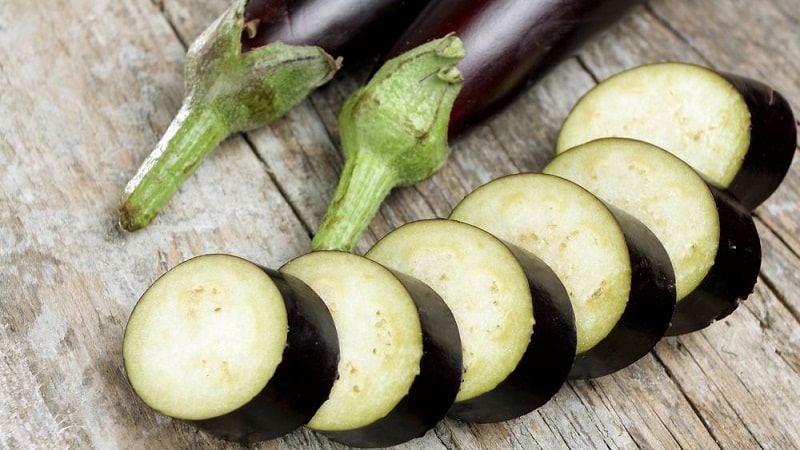
Late harvest
If you do not harvest on time, the skin of the fruit begins to become rough. and acquires a yellowish tint. The pulp of such eggplants becomes bitter. Therefore, harvest vegetables when their seed part is still light - 40-45 days after the ovaries appear on the plant.
Weather changes
During sudden changes in air temperature Eggplants develop a bitter taste. Therefore, if the weather in the region is changeable, then it is better to grow this crop in a greenhouse.
Mistakes when watering
Another reason why eggplants are bitter is arid soil. In sunny weather, drying out of the soil for growing this crop is unacceptable. Water the plantings with warm water (about +25°C) every other day. And do this strictly in the first half of the day.
Varietal features
In nature, there are varieties that will taste bitter no matter how you grow them - this is their feature. Therefore, before purchasing seeds, study the description of the crop you are going to plant.
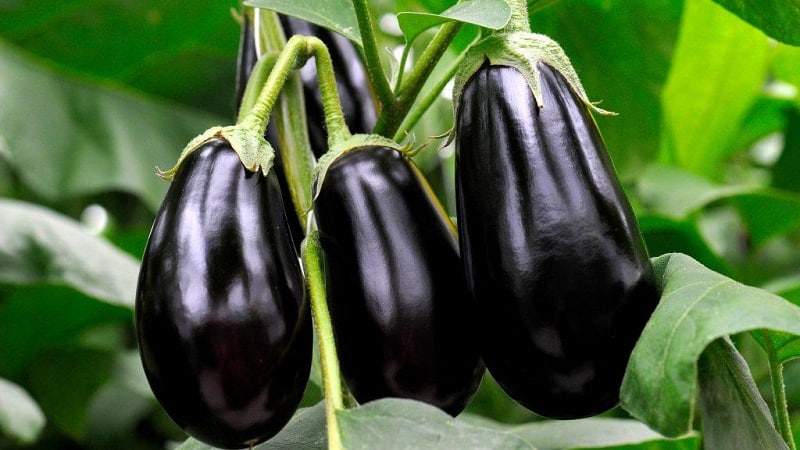
Choose proven varieties, For example:
- Nutcracker;
- Lolita;
- Diamond;
- Purple miracle F1;
- Czech early;
- Thai white;
- Pelican F1;
- Rosita.
You will find even more varieties of this crop that do not have bitterness at the end of the article.
Is it possible to eat bitter eggplants?
No, you cannot eat such vegetables. And why? It’s not tasty. Eating bitter eggplants can also cause stomach upset and serious poisoning.
But everything is not so clear. Do not rush to throw away fruits with bitterness. After all, their unpleasant taste is easy to get rid of.
How to remove bitterness
There are several effective ways to do this.
Soaking
More often, To prevent eggplants from becoming bitter, they are soaked in cold salted water (for 1 liter of water 1 tablespoon of salt). Chop the vegetables and place them in the prepared brine. Place a plate with a weight on top (for example, a bottle of water). Leave for about 40 minutes. During this time, the fruits will release juice, which will also release bitterness. Afterwards, rinse the vegetables from salt in running water and dry with a paper towel.

Soaking in milk
Cut the fruits and immerse them in fresh milk. Place a weighted plate. Leave to soak for half an hour, then wring out and dry with a paper towel.
Salt
Cut the fruit into several pieces. Sprinkle with coarse salt and leave for 20-30 minutes. Rinse the eggplants and pat dry.
Important! Do not use fine salt for this method. There is a risk that the vegetables will have time to absorb most of it. Then the whole dish will turn out too salty.
Removing skin and seeds
The main bitterness of eggplants is concentrated in the peel. Therefore, to get rid of it, sometimes it’s quite simple cut off the skin.
But this method is not always suitable. For example, if you want to cook stuffed eggplants or some other dish where the fruit is used only with the peel, then use a different method.

The seeds also contain a lot of solanine, especially in older vegetables.. To remove them, cut the fruit lengthwise and then use a spoon to remove the seeds.
Note. The advantage of this method over others is that the fruits do not absorb additional moisture.
Freezing
Freezing – less popular of all methods, but still effective. Slice the fruit lengthwise into thin slices. Place on a plate and place in the freezer for four hours. Then squeeze out the eggplant slices - the bitterness will go away along with excess moisture.
Important! After freezing, vegetables acquire the consistency of puree during subsequent heat treatment.
How to grow eggplants without bitterness
Proper cultivation will help prevent the appearance of bitterness in eggplants. We will tell you what it is in order from the very moment of sowing the crop.
Growing seedlings
The very first thing you should do is purchase seeds of varieties tested specifically in your region. This, although not one hundred percent, is a guarantee of a good harvest.
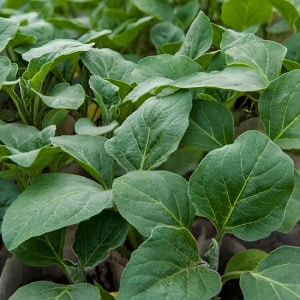 Before sowing, wash the seeds with a weak solution of potassium permanganate. At the end of February-beginning of March, plant them in a box with soil. The planting depth is about 2 cm, the distance between the seeds is 3 cm. If you take the soil from the garden, then steam it first.
Before sowing, wash the seeds with a weak solution of potassium permanganate. At the end of February-beginning of March, plant them in a box with soil. The planting depth is about 2 cm, the distance between the seeds is 3 cm. If you take the soil from the garden, then steam it first.
Cover the planting with plastic film to create greenhouse conditions (temperature about +28°C).After germination, remove it and place the plants on the windowsill. Maintain a comfortable temperature for growing seedlings of about +22°C, water them regularly.
About two weeks after the sprouts appear, the plant will grow three leaves.. Then plant the plants in 0.5 liter pots with fertile soil.
Paired vaccination
Seedlings can be grafted when they are about 15 cm in height, and their stems will already be more than 5 mm thick. Vaccinate in pairs:
- Take two seedlings and on each stem, at the same level, make cuts about 2 cm with a blade.
- Connect the stems cut to cut, wrap in film and leave for a week.
- Cut off the weaker seedling just above the grafting area and leave for another week.
As a result, you will get one plant that will have two root systems. Now it is ready for planting in a greenhouse or open ground.
Care
There is nothing difficult about caring for eggplants.. There is only one basic requirement: do not forget about regular watering - do not allow the soil to dry out. And collect ripe fruits on time, without keeping them on the branches.
Compliance with the rules of agricultural technology will allow you to achieve high yields (about 30% higher than with conventional cultivation) and produce vegetables without a bitter aftertaste.
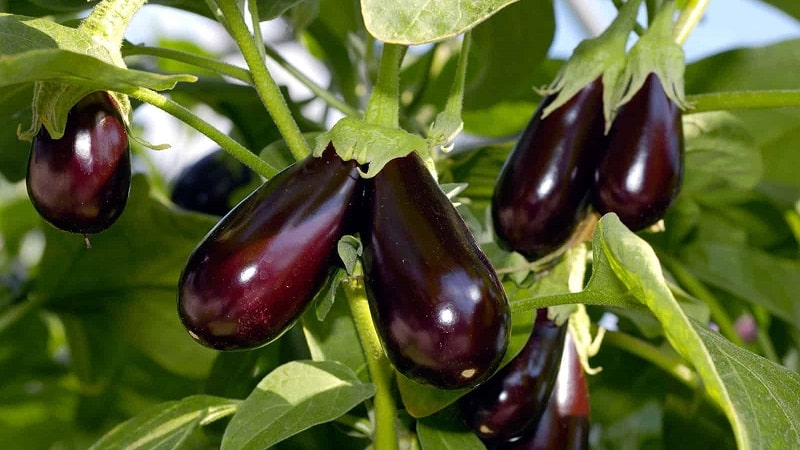
Eggplant varieties without bitterness
Breeders have developed new varieties of eggplant - alkaloid-free. They have snow-white, sweetish-tasting flesh and thin skin. They don’t even need to be cooked and added raw to salads.
The range of varieties and hybrids of eggplants without bitterness is large. Therefore, when choosing, be guided by the climatic conditions of your region and the growing season suitable for you.
Early varieties and hybrids:
- Alekseevsky;
- Maxik F1;
- Behemoth F1;
- Nancy F1;
- Quartet;
- Purple Haze;
- Valentina F1;
- Purple miracle F1.
Mid-season varieties and hybrids:
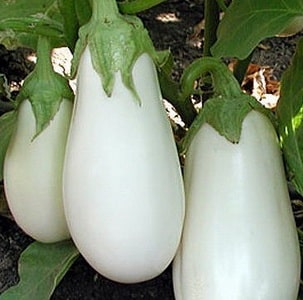 Swan (pictured);
Swan (pictured);- Surprise;
- Ping Pong F1;
- Comet;
- Sailor;
- Diamond;
- Pelican F1;
Late ripening varieties and hybrids:
- Bull forehead;
- Brunette;
- Black handsome.
Growing varieties without bitterness is no different from growing regular varieties. The only thing we recommend paying attention to when choosing is adaptation to climatic conditions. Each climate zone has its own eggplant varieties.
Conclusion
Now you know how to grow eggplants without bitterness. But, if you still did not manage to harvest the crop on time or forgot to water the plant regularly, do not rush to throw away the bitter fruits. Use one of the suggested methods for pre-processing vegetables, and then feel free to prepare your favorite dishes.